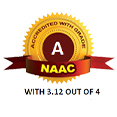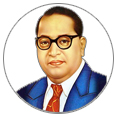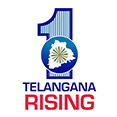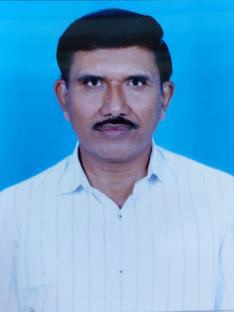Director, Learner Support Services Branch (LSSB)
Introduction:
Learner Support Services Branch (LSSB)
Of the six Directorates the Learner Support Services Division is the key department through which activities relating to teaching-learning are organized involving students and teachers at the study centre level. LSSD enrolls students, organizes face-to-face contact sessions, and extends other forms of academic support to its students. They also arrange laboratory science practical training at the study centres for second and third-year students and intensive coaching programmes (for some Subjects/Programmes) known as “Summer/Winter Schools”. These include lectures by experts in the subject and form part of the student support services. The student services branch thus serves as an information bureau; as an office for the admission of students to various courses of study; and as a channel of communication between the university and its students.
The Study Centres provide opportunities for teacher-student and student-student interaction. Students select the study centre of their choice keeping in view the programmes offer. Each study centre is headed by a Joint Director/Deputy Director/Asst.Director/Co-ordinator.
The key components of the student services system at the University include:
-
Printed course materials supplied by the university;
-
Face-to-face contact sessions at study centres;
-
Pre-recorded video and audio lessons;
-
Radio broadcasts daily at a fixed time in six half-hour slots four days a week;
-
Live two way audio and one way video teleconferencing;
-
Live phone-in radio conferencing;
-
Summer school for some programmes;
-
Laboratory practical training at zonal study centres for science subjects;
-
Reference library facilities; and
-
Lectures and seminars on topics of social relevance and current importance.
Unit Heads Of Learner Support Services.
|
Name
|
Designation
|
CONTACT NUMBER
|
OFFICIAL MAIL ID
|
|
|---|---|---|---|---|
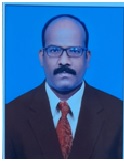 Prof. G. Dayakar
|
Dean, Student Affairs and Campus Development
Learner Support Services Branch (LSSB) |
9281013651
|
blalrathod@gmail.com
|
|
 Dr. Y. Venkateshwarlu
|
Director , Learner Support Services Branch (LSSB)
Learner Support Services Branch (LSSB)
|
9281013650 |
|
|
 Dr. Banoth Dharma
|
Joint Director (SS)
Learner Support Services Branch (LSSB) |
9246153893
|
drdharmab@gmail.com
|
|
 Dr.A.Rama Devi
|
Joint Director (SS)
Learner Support Services Branch (LSSB) |
9281013656
|
ramadevibraou@gmail.com
|
|
 Dr. Etikyala Rajender Reddy
|
Joint Director (SS)
Learner Support Services Branch (LSSB) |
9281013655
|
rajender14reddy@gmail.com
|
Learner Support Centers and the Counselling System
The Leaner Support Services Division (LSSD).is an important and vital segment of Dr BRAOU- in That it conducts admissions to different programmes of the University and ensures smooth functioning of Learner Support Centres and Regional Centres. Presently, there are 180 Learner Support Centres, out of which 23 are Regional Centres. Besides admissions, guiding the learners and keeping them informed about the various activities of the University through the University website and giving SMS alerts about the various activities of the University are other functions of the Learner Support Centres (LSCsD). Out of these 180 LSCs, 20 are PG Study Centres and 14 of them offer M.B.A. Programme. For B.Ed. there are 10 Centres and for Special B.Ed. there are Professional Support Centres, Combined in Telangana and Andhra Pradesh States. 4 Study Centres are located in Central Prison, Cherlapalli, Hyderabad, Kadapa, Rajahmundry and Nellore.
The Regional Co-ordination centres in the district head-quarters are provided with satellite communication. Face-to-face counselling and individual guidance for learners is provided at these study centres. Counselling deals with academic pursuits, career planning, choice of optional subjects, course units, assignments, examinations, audio and video lessons, and so on. The university reviews the counselling system from time to time and changes the methodologies of the system whenever necessary, based on feedback from students. All the centres act as annual examination centres in addition to providing face-to-face contact, academic guidance and general information.
Counsellors and Counselling Sessions
The university organizes regular face-to-face contact sessions at the study centres with the help of counsellors, whom the university appoints on a contractual part-time basis. Approximately 6500 Academic Counsellors, engaged from among the teachers working in the host institutions, assist in the tutorial services provided for all the programmes offered by the University.
Face-to-face Contact Sessions
The face-to-face contact sessions relate to course units, and academic content of different programmes. Face-to-face contact sessions are held on a fixed number of Sundays in each academic year, that is, for 24 hours per semester for optional subjects for the first-year undergraduate programme. For the third-year undergraduate programmes, the contact sessions are held for 48 hours per course per semester. The students of First year B.Sc. programmes are provided with 24 hours of laboratory practical training for each course per semester, of which time is allotted for hands-on experiments and for demonstrations and videotaped experiments. In the third year of B.Sc. programme 48 hours are allotted per optional subject per semester. A total number of 192 hours are allocated for laboratory experiments for six semesters for one optional subject in science. B.Sc. students are required to pay an additional fee towards the lab fee for practical training.
The schedule of contact sessions is communicated to students by individual letters sent from the student services branch at headquarters. As well, the study centre coordinators give wide publicity about the programmes through local newspapers. Attendance is not compulsory for the face-to-face contact sessions. But, attendance is compulsory for science practical training. The science students are not allowed to sit the examinations if they do not have a minimum of 75% attendance in the practical sessions.
The majority of the learners are consistently rural consistently rural background. The total number of rural learners in the academic year 2021-22 were 74,216 learners compared to 46,570 of the total number of urban learners. This shows primarily that the University has a rural base. Out of 1,25,463 total learners enrolled for 2021-22 academic year 57,174 are women students. The number of women getting enrolled in different programmes is on the rise compared to their male counterparts specially in programmes like M.A. English (2441), M.Sc. Maths (1865) , M.A. Telugu (1071) in 2021-22.
Nearly 1378 persons with disabilities enrolled in the University programmes of the University in 2021-22 and 21 transgenderS have also got enrolled the same year.
Amongst the 1,25,463 candidates enrolled in the academic year 2021-22, 63,383 belong to Backward Castes, 30,363 to Scheduled Castes and 15,082 to the Scheduled Tribes. The above figures point out to the access and affordability of the University programmes to the distant learners.
Besides admissions, guiding the learners and keeping them informed about the various activities of the University through the University website and giving SMS alerts about the various activities of the University are other functions of the LSSD. Under the aegis of the Vice-chancellor, Dr BRAOU adopted “Blended mode of Learning” where active learning was made possible from University Head Quarters from the academic year 2020-21, and this mode learning continued in 2021-22. Further, in addition to the regular Radio and Video lessons through T- SAT channel on weekdays, YouTube channel of the University was launched making the lessons available 24X7 to the learners.
Blended Mode of Learning
As per the UGC Regulations, Dr.BRAOU provides flexible learning by using a variety of media, including Print and Electronic media and conducts online counseling and occasional interactive face-to- face meeting. Teaching-learning experiences include practical work experience.
The pedagogical use of modern educational practices that support blended learning are also adopted by the University so as to have more sophistical approach to the use of ICT and expertise in e- learning.
So there is a shift to blended mode of learning by the University with elements of online learning and physical counseling classes at learning Support Centres.
A few contact-cum-counseling classes are conducted at learner Support Centres and some contact-cum-counseling classes are conducted online through zoom platform from University headquarters. The schedule of online classes and offline classes are displayed on the University web-site regularly.
The launching of the MOOC courses on SWAYAM platform of the UGC on “Gender Sensitization” and “Stress Management” with the idea of making them online electing courses with credits for students at Degree level is another innovative step taken by the University.
LSSD has also contributed in the initiative of the University to have a Learner Support Centre at Army Ordinance Corps Centre, Trimulgherry, Secunderabad, offering all the academic programmes of the University for the Defense personnel and their family members, thus serving those who serve the nation.
LSSD- with its network of Learner Support Centres and the office at the Head Quarters and helpdesk has tried to serve learners in interests during the last 3 academic years and also tried to bridge the University’s vision with students’ aspirations and dreams, especially during the troublesome pandemic years.
Read More

